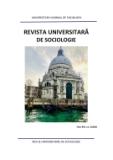CHILDREN'S RIGHTS TO MOTHER-TONGUE EDUCATION. A SMALL CASE QUALITATIVE STUDY IN CHERNIVTSI
CHILDREN'S RIGHTS TO MOTHER-TONGUE EDUCATION. A SMALL CASE QUALITATIVE STUDY IN CHERNIVTSI
Author(s): Mihai-Bogdan Iovu, Alina BărbuțăSubject(s): Language studies, Public Administration, School education, State/Government and Education, Ethnic Minorities Studies, ICT Information and Communications Technologies
Published by: Ediktura Beladi
Keywords: education; mother-tongue; children’s right;
Summary/Abstract: The right to mother tongue education, before being seen as a linguistic right specific to minorities, or as a particularity of the right to education, must first of all be seen as a unique, fundamental right, alongside the other rights of children. Language is essential for human culture, being considered one of the most important expressions of identity (Ozfidan, 2014). This fact highlights the importance of language aspects and their significance for ethnic and linguistic minorities. Linguistics rights can be described as a series of obligations of the state to recognize and support the use of the languages of national minorities. The importance of these rights has implications for the inclusion and social participation of members of a minority.
Journal: Revista Universitară de Sociologie
- Issue Year: XVI/2020
- Issue No: 2
- Page Range: 62-71
- Page Count: 10
- Language: English

